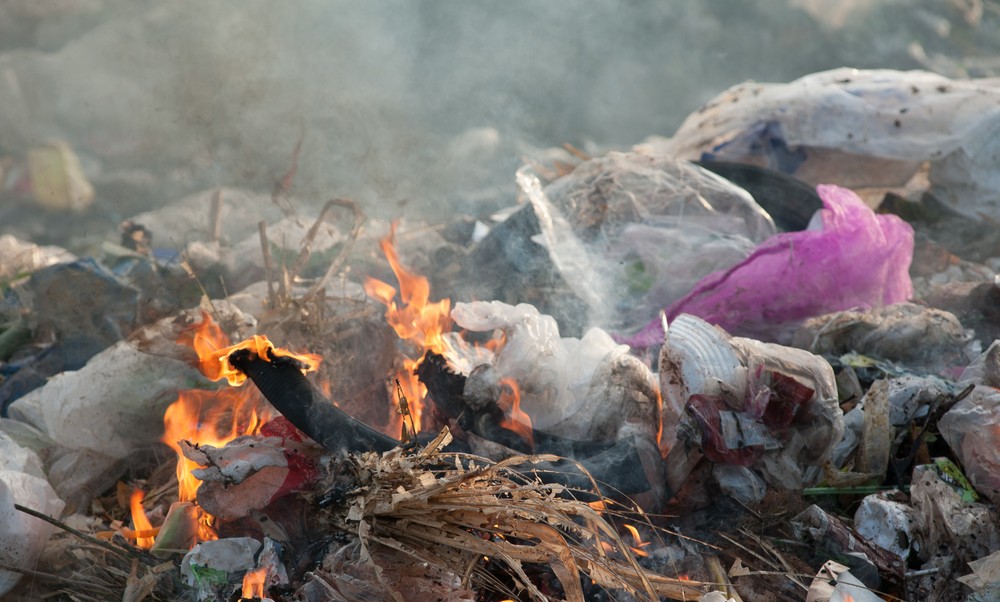Popular Reads
Top Results
Can't find what you're looking for?
View all search resultsPopular Reads
Top Results
Can't find what you're looking for?
View all search resultsBurning plastic waste harmful to health
Burning plastic waste is a common practice among Indonesians, but the method reportedly causes newly discovered problems deemed dangerous to health and the environment.
Change text size
Gift Premium Articles
to Anyone
B
urning plastic waste is a common practice among Indonesians. It is considered a quick and easy solution to reduce overflowing garbage.
Though the waste is reduced in terms of volume, the method reportedly causes newly discovered problems deemed dangerous to health and the environment.
Emil Budianto, director of the University of Indonesia’s Environmental Science Department, said to Kompas that plastic waste is known to contain carbon and hydrogen.
Those compounds mix with chloride often found in food waste. When they are set on fire, the mixture releases gas that is harmful to humans.
“When plastic waste and food waste are burned, they produce dioxin and furan. These elements, even in small quantities, can cause death,” he said on Sunday.
Read also: Plastic producers reject excise, refuse to take blame for waste
If dioxin is inhaled, it can instantly cause coughing, shortness of breath and dizziness. Long-term exposure to dioxin can also cause cancer.
Another harmful effect of burning waste is pollution, as it can damage the ozone layer. It also correlates with the greenhouse effect.
A more environmentally friendly way of disposing waste is by stable burning at 1,000 degrees Celsius. It can be done by using the incineration method, or a waste treatment process that involves the combustion of organic substances in waste materials.
“With incineration, no harmful gases will be spewed as long as it is done at 1,000 degrees Celsius — though I understand that this is difficult for households,” Emil said.
He expressed hope that waste burning will not be practiced in the near future. “I also hope that the public will reduce usage of plastic. Please buy less plastic bottles, and bring your own shopping bags and bottles,” he said. (wng)











